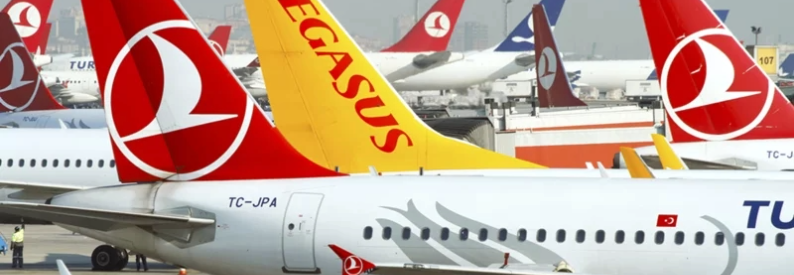Turkish Airlines and Pegasus Surrender Tel Aviv Slots

Turkish Airlines and Pegasus Airlines have announced they will permanently relinquish their landing and departure slots at Tel Aviv’s Ben Gurion International Airport, ending the suspension of routes that began when hostilities erupted in October 2023. Both carriers informed airport authorities that, due to ongoing security concerns and an internal pilot-dispute, they will not resume flights to Israel. The decision leaves a significant gap in service and removes valuable time-sensitive slots from one of the region’s busiest hubs.
Before the suspension, Turkish Airlines was the fourth-largest foreign carrier at Ben Gurion, accounting for nearly 5 percent of the airport’s traffic in 2019. Its Istanbul–Tel Aviv route was among the airline’s most lucrative, driven by high onward demand to Europe, North America and Asia. Turkish regularly operated up to 16 daily flights at peak periods, carrying more than 5 percent of all passengers through the airport in July and August 2023 before halting services on October 11.
Pegasus Airlines, Turkey’s low-cost carrier, also maintained a strong presence at Tel Aviv, ranking twelfth by passenger share. It operated daily flights between Tel Aviv and Istanbul’s Sabiha Gökçen Airport, offering competitive fares for point-to-point traffic. Like Turkish, Pegasus cited the ‘use it or lose it’ slot rule for their ultimate decision, as aviation regulators require consistent operation to retain airport slots—aside from conflict-related suspensions.
Both airlines had initially been granted extensions to decide whether to hold or return their slots, with a March 2025 deadline later extended amid the region’s volatile security situation. As they opt not to reactivate services, the carriers have surrendered slots that may now be allocated to rival airlines. Industry observers expect other Middle East and European carriers to bid for these slots, potentially strengthening their market share on the lucrative Istanbul–Tel Aviv corridor.
Analysts warn that the loss of convenient departure and arrival times will damage Turkish and Pegasus’s competitive position. With fewer optimal slots, both airlines may struggle to match the frequencies offered by Middle Eastern rivals such as Emirates or by European carriers like Lufthansa and Air France, which can now fill the freed capacity. This shift also underscores the broader strategic challenge of balancing route profitability against geopolitical risk.
Turkey’s state influence adds another dimension to the decision. Turkish Airlines is 49 percent owned by a government investment fund, and President Erdoğan has been openly critical of Israel’s military actions. While the carriers maintain that the decision was commercially driven, some industry insiders believe political considerations played a part in electing not to return to Tel Aviv’s volatile market at this time.
For Tel Aviv-Ben Gurion Airport, the departure of two major carriers represents a significant loss of connectivity. Before October 2023, Ben Gurion saw more than ten daily services each from Turkish Airlines, Pegasus and El Al alone. The airport must now rely on existing carriers and any new entrants to maintain service levels and fill the economic void left by the Turkish carriers’ exit.
Within days of the Turkish and Pegasus announcements, Virgin Atlantic confirmed it would permanently cancel its London–Tel Aviv route, further shrinking Israel’s international connectivity. British Airways and easyJet remain the only UK carriers flying to Tel Aviv, but frequencies remain below pre-pandemic levels. Israel’s aviation sector now faces the challenge of attracting new airlines to maintain competitive fares and passenger choice.
Passengers who had booked on Turkish or Pegasus are being re-accommodated through alternative carriers or offered refunds in line with international regulations. Airport authorities have urged travelers to verify flight schedules before making travel plans and to remain flexible as slot reallocations progress in the coming months.
As the Middle East’s aviation landscape continues to evolve, the decision by Turkish Airlines and Pegasus underscores the fragility of international networks in the face of geopolitical tensions. With valuable Heathrow and Istanbul slots vacated and security uncertainties persisting, both airlines—and the airport—must navigate a period of reduced service and increased competition for prime airport access.
Related News : https://airguide.info/?s=Turkish+Airlines
